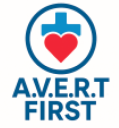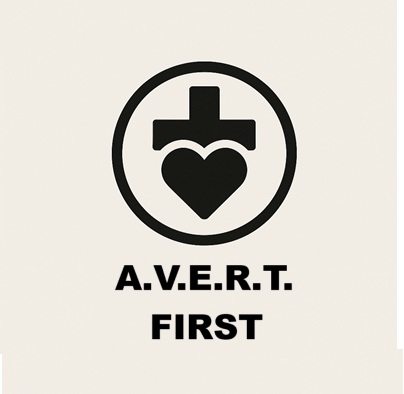
Pre-Engagement Strategies
Before stepping into any prevention, support, or intervention role, it is essential to prepare with intention. A.V.E.R.T. First emphasizes pre-engagement strategies that help individuals approach health, safety, and social well-being concerns with clarity, balance, and professionalism.
Communication Readiness
-
Practice clear, respectful, and open communication.
-
Focus on listening first—understanding context is as important as sharing information.
-
Avoid assumptions by asking thoughtful, non-leading questions.
Critical Thinking Preparation
-
Slow down and consider multiple perspectives before acting.
-
Evaluate facts, patterns, and available resources.
-
Look for potential risks and benefits in every option rather than rushing to conclusions.
Emotional Check-In
-
Recognize your own stress level, biases, and emotional state before engaging.
-
Ground yourself with a pause or breathing technique to maintain balance.
-
Enter the situation with empathy, but without over-identifying or becoming overwhelmed.
Unbiased & Inclusive Approach
-
Acknowledge that each individual’s background, culture, and circumstances shape their experience.
-
Approach situations with openness, curiosity, and respect.
-
Commit to fairness by avoiding judgmental language and actions.
Why It Matters
By practicing pre-engagement strategies, learners build a strong foundation for early prevention and recognition of risks. These skills increase trust, reduce misunderstandings, and create a safe space for meaningful dialogue and timely support. At Avert Harm, we place great emphasis on mastering these skills.
Would you like me to also make this more action-step oriented (like a quick checklist or “3-step pre-engagement scan”) so it feels even more practical for training use on your site?
A.V.E.R.T. First emphasizes that prevention begins before engagement. Preparing yourself as a professional—or as a community member in a support role—helps build trust, reduce harm, and strengthen outcomes.
The Pre-Engagement Checklist
1. Communication Readiness
☐ Have I centered myself to listen first, speak second?
☐ Am I prepared to use clear, respectful, and neutral language?
☐ Do I have open-ended questions ready instead of assumptions?
2. Critical Thinking Scan
☐ Have I slowed down to consider multiple perspectives?
☐ Am I reviewing facts and patterns, not just impressions?
☐ Do I know the resources, policies, or supports available if needed?
3. Emotional Self-Check
☐ What is my current stress level or emotional state?
☐ Am I grounded enough to respond with balance instead of reaction?
☐ Can I maintain empathy without over-identifying or personalizing?
4. Unbiased & Inclusive Approach
☐ Am I leaving behind preconceived notions or stereotypes?
☐ Have I considered cultural, social, and individual differences?
☐ Am I ready to approach the person or situation with openness and respect?
Conclusion: Pre-engagement is more than preparation—it is the first step in prevention and recognition of risk. By using this checklist, providers and participants can enter each interaction with clarity, consistency, and professionalism. This readiness supports A.V.E.R.T. First’s mission: to create safer, more responsive environments for health, safety, and social well-being.





